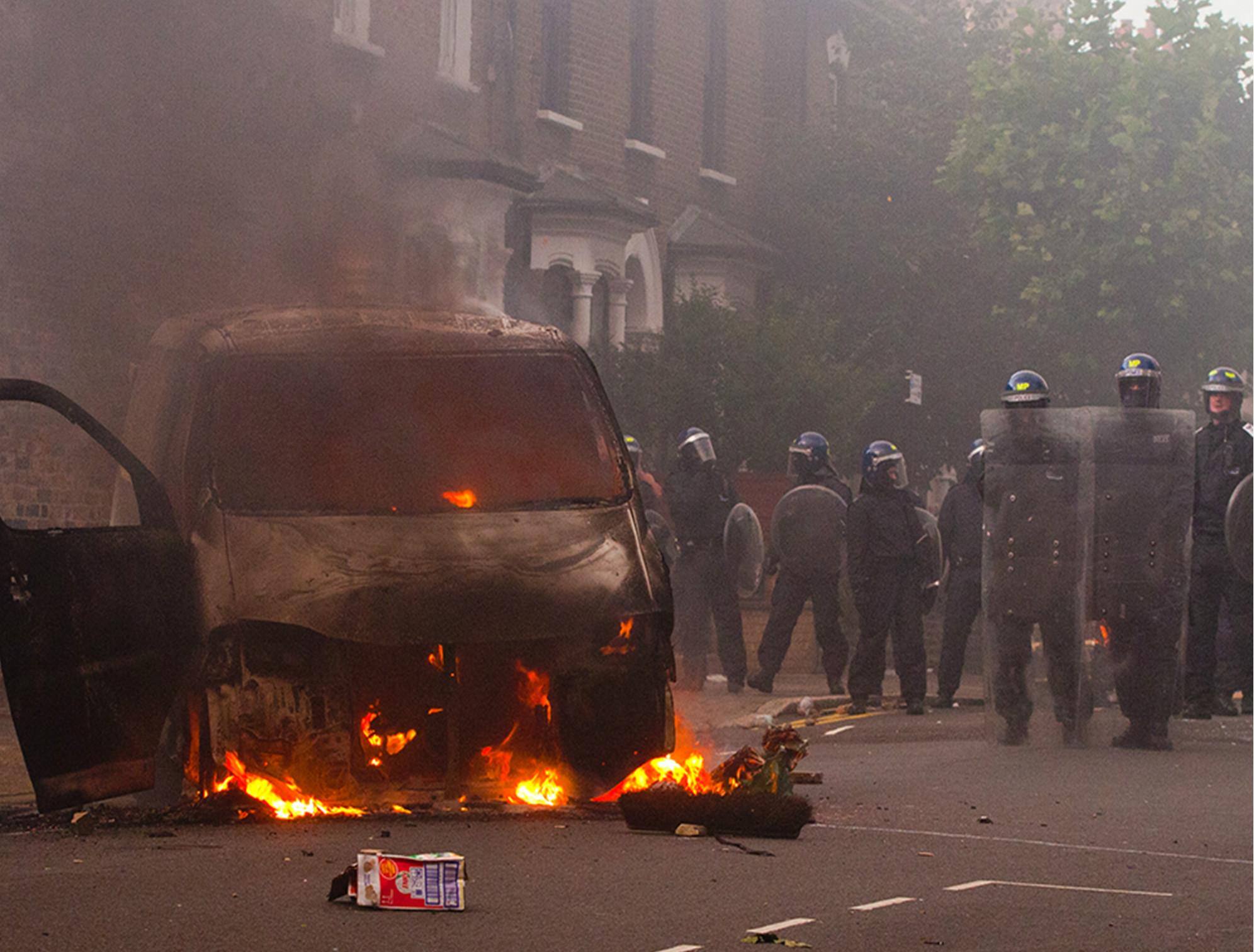I was caught up in the 2011 London riots, and I know they could happen again now
Five years after the riots, the policies put in place to tackle them have failed spectacularly


Exactly five years ago this week I watched on helplessly as live footage of rioters on Hackney’s Mare Street, where I lived, was broadcasted into the newsroom where I worked. Shop windows were smashed and doors were broken in at street-level below my small flat. From the angle of the television cameras, it wasn’t possible to tell if properties were being rammed and raided along with the shops and bookies already under attack.
Worse, my mother – who I had invited to London to stay with me – was inside my flat as riot police drew a baton line and charged rioters on the street below.
By now, my mum had called police to ask for advice: should she stay in the property, risking rioters breaking in and threatening her, or arson on the ground floor trapping her upstairs, or flee now, while she could still get out and the buses were still running? Their response was pitiful – “do what you think is right” – and clear evidence, to my family at least, of how the police were woefully underprepared for the situation, and now out of control of it.
In the end she took a punt, ran out with only a handbag and, after police sealed off the whole area, ended up staying the night in a Euston hotel with me.
When we returned the next morning, apart from the boarded shop windows there was no evidence of the turbulence of the previous afternoon – volunteers and the council had swept away every last shard of broken glass. But though life went back to normal pretty quickly for me, the community had been disrupted. It took six months and a £5,000 compensation award from the Mayor’s office for the optician whose shop, Eye London, was raided below my flat to get back to business.
For all of us, whether resident or rioter or both, something had changed.
Five years later, the riots of 2011 are little more than a memory of one long hot summer for most. But the causes of that lapse in the rule of law – social inequality and relative poverty, lack of opportunity and rising unemployment, class and race divisions, youth disaffection and disenfranchisement – are still with us. And the policies that the Government put in place to tackle them, in particular what became known as the “troubled families” initiative, have failed spectacularly.
The troubled families programme was flawed from the start. It promised to “turn around” (a woolly ambition, with no clear indicators of success) some 120,000 families (a figure plucked out of the ether after consulting a 2005 study of measures of poverty and carrying out interviews with 16 families, not based on any evidence of specific need) and tackle the myriad problems they faced.
You might think, given that they were labelled “troubled” that their problems included addiction, lawlessness, poor parenting, abuse and truancy. In fact, a household could be considered “troubled” if it had five or more of the following characteristics: no parent in work; poor quality housing; no parent with qualifications; a mother with mental health problems; one parent with longstanding disability or illness; low income; unable to afford food and clothing.
That’s simply a list of the conditions of poverty and disadvantage. There’s only one thing “troubling” about it: in the wake of the 2011 riots, the Government had set about labelling those with the least opportunities as dangerous to society, at risk of bringing down the rule of law again. Not a good start in what was supposed to be a policy that sought to heal social wounds and bring communities together to prosper.
Then, once the project was off the ground, councils discovered they couldn’t identify sufficient numbers of families who met the Government’s criteria to work with – despite that criteria being set so low. In the first year, council staff had only isolated 7 per cent of the target, because Britain was not harbouring tens of thousands of dysfunctional homes after all.
This week it emerged that an independent report on the troubled families programme – still described last July as a “real success” by the then Prime Minister David Cameron, who said he wanted it to target 400,000 more families by the end of the decade – had been “supressed” by Government because it demonstrated that the project had been a failure.
The analysis, carried out by the consultancy firm Ecorys and seen by BBC Newsnight, reportedly said: “The lack of obvious effect from the programme across a range of outcomes indicates that the programme did not have a measurable impact on families within the time-frame over which it was possible to observe its effects.”
So much effort (and public funding) expended; so little achieved. The causes of those riots some five years ago are very much still with us and nothing has been done to solve them.
To the contrary, in the wake of the Brexit vote those nebulous fire-starters – inequality, unemployment, disaffection and disenfranchisement – are crackling away.
Experts say that rioting is a rare social phenomenon in that it defies prediction. Even when all the signs are there, sometimes the touch paper fails to ignite. In late July this year, there were three reported incidents of “spontaneous violence” in London, and in the aftermath of the Brexit vote – which many said would lead to a new wave of disaffection and anger among the disenfranchised young – it was feared that matters would escalate and spread yet again. But they didn’t.
Those same experts, though, cite that crowd violence often has much to do with the relationship between citizens and the establishment – in particular the police. Given the tensions between the state and the people, not just in academic terms but in day-to-day life, and particularly in urban communities, there’s no cause for comfort. They may feel like a distant memory now but, five years on, the 2011 riots are just as relevant today.





Join our commenting forum
Join thought-provoking conversations, follow other Independent readers and see their replies